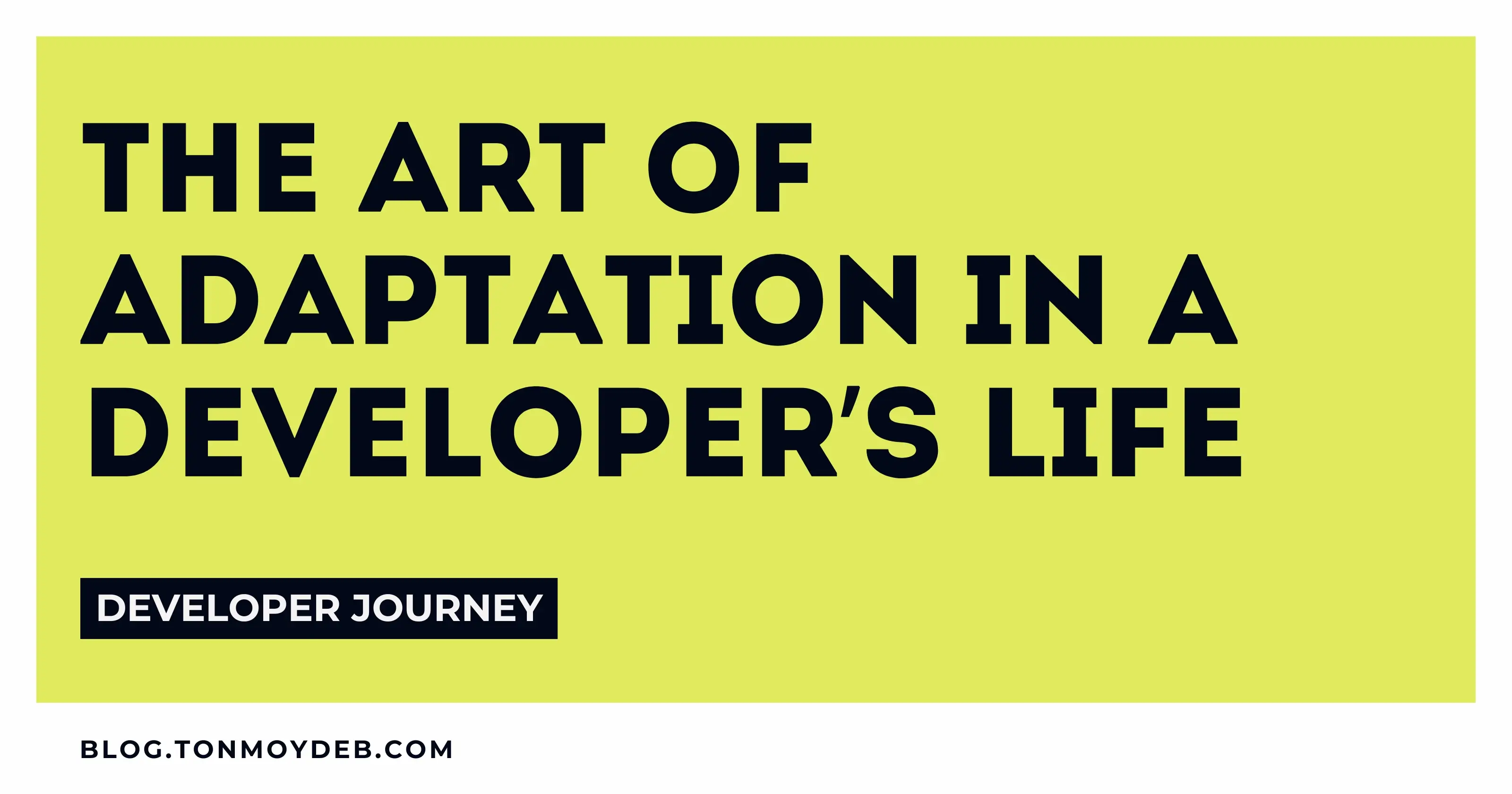The Art of Adaptation in a Developer’s Life
 Tonmoy Deb
Tonmoy Deb
Introduction
As developers, we live in a world of constant evolution. Every day, new tools, frameworks, and technologies emerge, reshaping the way we work. To stay relevant, it's essential to embrace change and adapt to these innovations. In this blog, I want to share my journey of adapting to new technologies and reflect on why mastery goes beyond just using a tool—it’s about integrating it into our daily workflow.
My Journey with JavaScript and React
I still remember when I started learning React JS. At the time, I was deeply attached to raw JavaScript. It was familiar, efficient, and something I had spent years mastering. I could solve almost any problem in minutes because of how comfortable I was with it. React, on the other hand, felt new and challenging. Every time I built something with it, I encountered countless errors and roadblocks.
Despite the initial struggle, I stuck with React. Over time, as I worked on more projects, the challenges turned into opportunities to learn. Eventually, React became my go-to framework, and now, whether it’s a simple app or a complex system, I’m confident in building it with React.
This journey taught me an important lesson: mastery comes from consistent practice. Until you integrate a technology into your regular workflow, it remains unfamiliar and intimidating. Adapting to new tools is never easy, but it’s the only way to truly grow as a developer.
The Role of AI in Development
In today’s AI-driven world, tools like ChatGPT have revolutionized development. They allow us to write code, debug issues, and research solutions faster than ever before. But there’s an important distinction between using AI and mastering a technology.
AI can help you build prototypes, automate repetitive tasks, and provide quick answers. However, creating production-level applications requires more than just writing code. Real-world scenarios are filled with unique challenges, and solving them demands experience, creativity, and problem-solving skills.
For example, you may have seen YouTube videos claiming, “I built a million-dollar app using AI.” While impressive, these developers often have years of experience and use AI as a tool to accelerate their workflow—not as a crutch. Mastery comes from understanding the nuances of your tools, and that level of understanding only comes with practice and adaptation.
Why Adapting Matters
Adapting to new technologies isn’t just about learning the basics; it’s about incorporating them into your workflow. For instance, when I first started with React, I struggled to let go of my JavaScript habits. But over time, I realized that by adapting React into my daily projects, I could unlock its true potential.
The same applies to AI tools. While they’re excellent for speeding up tasks, they can’t replace the depth of knowledge you gain through hands-on experience. Building expertise requires consistent effort—reading documentation, solving problems, and experimenting with real-world projects. You don’t need to master every tool, but for the ones you want to excel at, make them part of your routine.
Conclusion
AI is a powerful ally for developers, but it’s not a replacement for expertise. To truly master a technology, you need to adapt it into your daily life and face the challenges it brings. Mastery is not just about knowing how to use a tool—it’s about understanding its intricacies, solving unique problems, and growing with it. The art of adaptation is what keeps us evolving in this ever-changing field of development.
Subscribe to my newsletter
Read articles from Tonmoy Deb directly inside your inbox. Subscribe to the newsletter, and don't miss out.
Written by

Tonmoy Deb
Tonmoy Deb
Web app developer who loves clean, organized code. Passionate about building projects, solving problems, and sharing knowledge through insightful coding blogs.